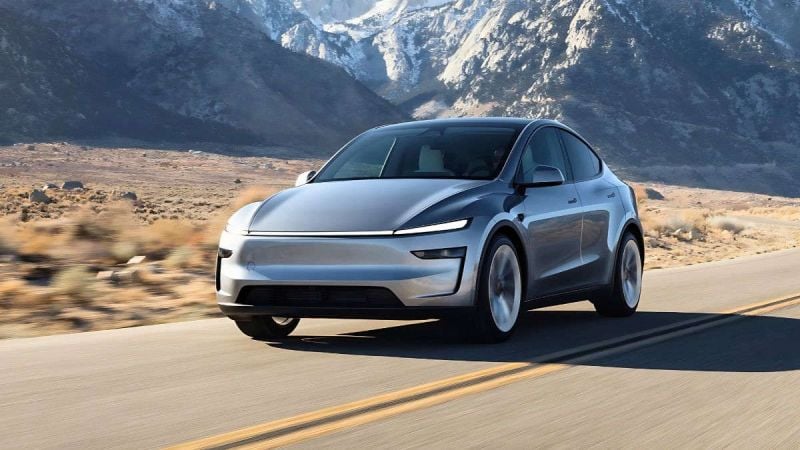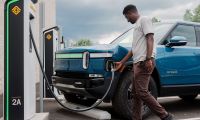Greg Stapells, a Model Y owner from Canada, says he’s concerned about how quickly his Model Y battery pack is degrading.
Greg reports that his Model Y is a year and a half old and has only been driven 12,000 kilometers (7,500 miles); however, the vehicle has already lost 3% of its energy capacity.
Greg mentions that when brand new, his Model Y with 20-inch wheels could travel 460 kilometers, but now, its range has decreased to 446 kilometers.
This may not seem too concerning; however, Greg is worried that his Model Y is losing battery capacity much more quickly than his three prior Model S vehicles.
He notes that his first Model S, a 2015 P85D, initially had a range of 404 kilometers. After eight years of use, it has only decreased by 15 kilometers, now able to cover 389 kilometers on a single charge.
His 2016 Model S P90D originally had a range of 405 kilometers, but it currently travels 399 kilometers on a single charge, reflecting a degradation of just 1.4% after 9 years.
Additionally, his 2022 Model S Performance can travel 560 kilometers per charge and has lost very little range.
These are all excellent battery retention numbers, so it’s no surprise that Greg is concerned about the range loss in his Model Y.
The concerned Tesla Model Y owner shared his findings in the Tesla Owners Canada Facebook group.
He writes…
“3 percent battery degradation after 1.7 years, Model Y Long Range AWD with 12,000 km.
It had 460 km of range (20” wheels, we wanted 19s!) and now it’s 446 km.
This seems like quite a bit of degradation compared to my Model S’s. My 2015 P85DL had a 404 km range when I purchased it, and it had 389 km when I sold it eight years later.
My 2022 MSP had 560 km with 21-inch wheels, and my 2016 P90DL was rated at 405 km new; now it’s 399 km with 21-inch wheels, although the displayed range doesn’t change with the wheel size, unlike the Plaid and Y.
I know everyone says degradation tapers off from this point onward.
Would you guys mind sharing your Model Y specification, year, and wheel size?
Please include these stats (especially wheel size and model) as they all matter.
I don’t think we need to share battery chemistry!”
Below his post, Greg included a screenshot of his battery degradation test, which shows that the Model Y retains 97% of its battery capacity.
The battery capacity test reads…
“97%
Your vehicle's high-voltage battery, like all rechargeable batteries, becomes less effective over time due to aging and usage.
To extend its energy retention, keep your vehicle plugged in when not in use and charge to the recommended limit. See the Owner's Manual for more information.”
At first glance, 97% battery retention over a year and a half doesn’t seem too bad; however, as Greg mentions, the numbers are concerning compared to the stellar battery retention he experienced with his previous Tesla Model S vehicles.
One issue may be that, according to Tesla’s published data, Model S and Model X vehicles with the 18650 battery are significantly better at retaining battery capacity than the more mass-market Model 3 and Model Y, which utilize Tesla’s 2170 cells.
According to Tesla, the Tesla Model 3 and Y, on average, lose 15% of their battery capacity over 200,000 miles, whereas the Tesla Model S and Model X lose only 12% of their range.
Nonetheless, looking at the comments, fellow Tesla owners attempted to comfort Greg, suggesting that the battery degradation of his Model Y is nothing out of the ordinary.
Many Tesla owners have noted that Tesla vehicles initially lose a relatively high percentage of their battery capacity, but these losses tend to taper off over time.
A fellow Tesla owner, Josh Robinson, responded to Greg, stating…
“Sounds normal to me. 2021 Model Y Long Range, on 19" wheels, 483 km at 100%. Long-range EVs aren't necessary on day 1 for most people, but after 10 years, they'll still be as good as a standard range was new.”
Another Tesla owner, John Bouwmeester, writes…
“It’s normal. You are good to go.”
Overall, looking at the responses, fellow Tesla owners don’t seem particularly concerned about a 3% battery degradation after 7,500 miles.
However, please let me know what you think in the comments. Share your ideas by clicking the RED “Add new comment” button below. Also, be sure to visit our site, torquenews.com/Tesla, regularly for the latest updates.
Image: Courtesy of Tesla, Inc.
For more information, check out: A Tesla Cybertruck Owner Reports That His Truck Died After He Rinsed It With High-Pressure Water. Tesla Responded, Saying, “You Must Activate Car Wash Mode Before Washing."
Tinsae Aregay has been following Tesla and the evolution of the EV space daily for several years. He covers everything about Tesla, from the cars to Elon Musk, the energy business, and autonomy. Follow Tinsae on Twitter at @TinsaeAregay for daily Tesla news.
Set as google preferred source












Comments
Many factors (electrical and…
Permalink
Many factors (electrical and mechanical) could influence that. Initial drop may not proceed linearly across the battery's lifetime. Might be faulty initial readings (I don't know exactly how Tesla measures battery capacity, but I know how it's historically been done, and determining accurate state-of-charge for lithium cells is not easy, so the system may have lied about the initial range, then "learned" a more accurate range).
One of the boring stories…
Permalink
One of the boring stories ever written.
That's nothing. It's been a…
Permalink
That's nothing. It's been a out 6 months since I've done a battery test, however, at around 20k miles, I was showing 92% battery health on my 2024 M3 RWD.
I'm assuming it's well under 90% now and instead of getting 272mi, I'm getting 220-240mi.
Hope to run a battery test soon when I actually get the time. At the Tesla service center they just say how it's to be expected. A hard pill to swallow when you spend $43k USD.
- Sam
The real question is why did…
Permalink
The real question is why did you have to buy 4 of them in 12 years?
A) I'm pretty impressed by…
Permalink
A) I'm pretty impressed by the numbers on his first vehicle.
B) I can't come up with an explanation for "initial battery capacity loss"....other than that it sounds like it's right, so no one questions it. If there is a technical reason for that, I'm all ears.
C) need more stats from users to see if it's a platform issue, or maybe just a lemon. But it sounds like the Tesla drivers have been conditioned to think that's normal.... whether it is or not.
Ah teslas drivers are…
Permalink
In reply to A) I'm pretty impressed by… by Matt (not verified)
Ah teslas drivers are brainless people 'conditoned', what a clown statement